A Consumer Guide to the Trailing Edge: September, 2013
Recycled Goods (#112)
by Tom Hull
A couple months ago I opened up files for both September and October Recycled Goods. The former had some unfinished business from my July roundup of 1960s records -- actually, the second in a series after May's 1960s obscurities -- and the latter started with some miscellaneous jazz records, with Ornette Coleman straddling both. Then I got a notice that a bunch of records on the Polish label Not Two were on sale, so I tried checking them out. Some of those were on Rhapsody, and after a pass through the sale items I started looking at the catalogue. And, well, I couldn't help myself. As September approached, I found I had much more in the "October" file than "September," so I swapped them. I didn't manage to get to all of them, but hit quite a few -- at this point I'm mostly missing early records by obscure Polish musicians (Cezariusz Gadzina, Tomasz Gwincinski, Emil Kowalski, Janusz Muniak, Beata Przybytek, Maciej Sikala, Arek Skolik, Agnieszka Skrzypek, Jarek Smietana, Tomek Sowinski, Maciej Strzelczyk, Karolina Styla, Piotr Wylezol, Janusz Zdunek) and some recent things, especially 2012 and later. (A full list of Not Two releases is here.)
Not Two Records was founded in 1998 by Marek Winiarski, who had previously co-founded GOWI Records -- one of maybe three labels in 1980s Poland that released avant-jazz records. (Tomasz Stanko was one of their big names.) In the early years Not Two mostly released records by Polish artists -- some avant, but many were more postbop. In 2003 they started recording occasional Americans when they'd pass through Poland -- the first was David Murray, who they teamed up with a Polish bass-and-drum duo (the Oles brothers, Marcin and Barlomiej Brat). In 2004 they recorded a 12-CD box of the Vandermark 5 live at Alchemia in Cracow. Shortly after that the majority of their releases were foreigners, and they started picking up studio tapes as well. They released 12-18 records a year, over 200 since 1998. (They started at MW 701 and are up to MW 904.) Over the last five years they've been one of Europe's finest labels -- roughly comparable to Clean Feed in Portugal and Leo in England, more prolific than Intakt in Switzerland. I've tried several times to get them to send me records, but have had very little luck with them -- the few records I do get, including Jazz CG Pick Hits like ROVA's The Juke Box Suite and Avram Fefer's Eliyahu have come from friendly musicians. So I had a lot of pent-up demand to hear what I've been missing. Rhapsody helped quench that thirst, but also imposed some limits: most records got one play, few more than two, and a lot of avant-jazz is hard to sort out that quickly. Still, I found a few items that made the grade, and there are probably some more gems buried in the high-B+ range. (The Steve Swell albums came especially close.)
The ACN includes a list of all the Not Two albums I've previously reviewed, including a few from Rhapsody Streamnotes. As I was working on this, I put several 2010 or later albums into last month's Rhapsody Streamnotes file. I could have done that with a few more here, but finally decided it makes more sense to run them here.
Everything here is jazz, but I do have a few things that didn't come from Not Two, and a couple things (Alan Broadbent, an early collection of the late Mary McPartland) are not avant at all. Still, the biggest side-trip was a stroll through the Ganelin Trio's 1980s recordings on Leo. I got there backing up from Live at Lugano, but ultimately didn't bother with Ganelin's other post-Trio work -- there are still a few more albums I haven't gotten to there. Could do a label thing on Leo some day. (Indeed, in addition to Ganelin I've done a lot of their Sun Ra recently.) Not sure how much of the catalogue is available on Rhapsody, but it is an important source, and there is a lot there I've yet to hear.
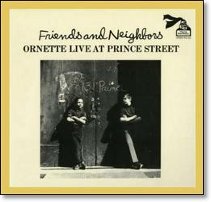 |
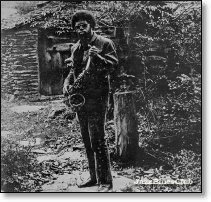 |
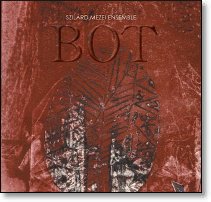 |
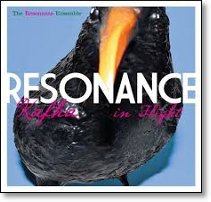 |
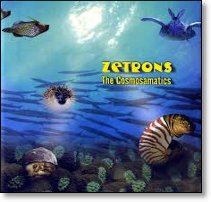 |
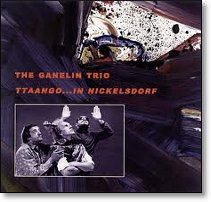 |
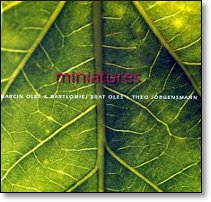 |
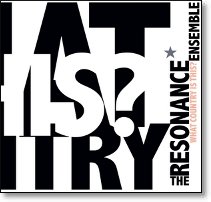 |
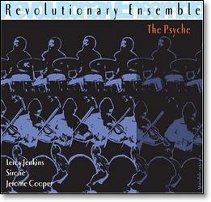 |
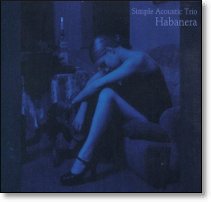 |
Ornette Coleman: Friends and Neighbors: Live at Prince Street (1970 [2013], BGP): Not many live recordings when Coleman filled the hole Don Cherry left in his quartet with tenor saxophonist Dewey Redman. The title cut gets an amusing singalong treatment, but then it's down to business, the two saxes slipping deftly by one another, even when they reach for the heights -- Coleman's alto has the advantage there, both higher pitched and more familiar with the terrain. A- [R]
The Cosmosamatics: Reeds & Birds (2004, Not Two): The reeds part is easy: Sonny Simmons (alto sax, English horn) and Michael Marcus (saxello, Bb clarinet). The group goes back to 2001 -- Simmons was making noise for ESP-Disk in the '60s, Marcus is a generation younger, and started recording in 1990. Original drummer Jay Rosen plays on the 24:36 finale, appropriately named "Avant Garde Destruct," while newcomver Clifford Barbaro handles the first seven tracks. The horns are high-pitched so a bit shrill, chasing and winding around each other, like the great sax jousts of yore. B+(***) [R]
The Ganelin Trio: Poco-A-Poco (1978 [1988], Leo): Free jazz group formed in 1968 in the Soviet Union, with Vyacheslav Ganelin on piano, Vladimir Chekasin on reeds, and Vladimir Tarasov on drums. Around 1982 Leo Records, an English avant-garde label run by Russian emigré Leo Feigin, started releasing their records, and they established as a remarkably tight and original group -- the authors of The Penguin Guide bestowed their crown icon on Catalogue: Live in East Germany (1977-82), then changed their minds in favor of Ancora Da Capo (1980). I picked up those two and was duly impressed, but didn't delve deeper until now, finding a sizable cache of their records on Rhapsody. This seems to be the first -- it was, at any rate, only the second CD issued by the label. The Soviet system was notorious for its narrowminded focus on folk and classical music, and you can find bits of that here and there, quoted like Dexter Gordon would a nursery tune. B+(***) [R]
Joe McPhee: Nation Time (1970 [2000], Atavistic): The 18:28 title cut is a black power funk classic, egged on by an MC shouting "what time is it?" and the horns pronouncing revolution. Then the second side starts with a powerhouse organ-driven polyphonic funk number called "Shakey Jake" and closes with a band jam called "Scorpio's Dance" -- a step down in power and forward in improv. McPhee, who plays both trumpet and tenor sax here, has had a long and wonderful career as the most determinedly rigorous of avant musicians, so I don't think he ever did anything like this again. A [R]
Szilárd Mezei Ensemble: Bot (1998-2004 [2009], Not Two, 2CD): Viola player from Serbia, seems to have picked up the fine points of a Communist education -- respect for the classics, a touch of nostalgia for the folk, and a bit of revolutionary turn toward jazz. Only a couple of these long pieces -- only two less than 10 minutes, with the title track topping 25 -- drag or wander, but most are remarkable exercises in arranging for a band that most often features two reeds (oboe and Bogdan Rankovic on alto sax, clarinet, and bass clarinet), three brass (trumpet, trombone, tuba), three strings (viola, cello, bass), and drums. The horns tend to dominate, usually in tight formation. A bit scattered, and too huge to really take it all in, but more dazzling than not. A- [R]
The Resonance Ensemble: Kafka in Flight (2011, Not Two): I lost track of new Ken Vandermark releases a few years back -- he stopped sending them, I stopped bugging him, more ambivalence about my project than lack of interest, nor did it help that Seth Tisue gave up on trying to manage Vandermark's discography nor that Vandermark's own one-promising website has fallen into obscurity. In the last five years or so I've managed to sample Vandermark groups like C.O.D.E., Fox Fire, Made to Break, Platform 1, Side A, but somehow I missed his Resonance project. It started as a 10-piece big band with an LP in 2008, followed by a 10-CD box in 2009 which looks like a mix of small groups and big band. This returns to the original lineup, with four reeds (Mikolaj Trzaska, Dave Rempis, Waclaw Zimpel, and Vandermark), trumpet (Magnus Broo), trombone (Steve Swell), tuba (Per-Ĺke Holmlander), bass (Mark Tokar), and two drummers (Tim Daisy and Michael Zerang). Probably the most coherent of Vandermark's large groups -- certainly less screech than the Brötzmann Tentet or the various Territory Bands. A- [R]
Briefly Noted
Basement Research: Live in Münster (1999 [2007], Not Two): One of many groups run by prolific bass clarinet/sax player Gebhard Ullmann, adopting the name of his 1995 album but swapping the ever versatile Tony Malaby in for the opposite sax role, keeping Drew Gress and Phil Haynes on bass and drums. B+(***)
The Michael Bisio Quartet: Live at Vision Fest. XII (2008 [2009], Not Two): Bassist-led quartet, with Jay Rosen on drums and two tenor saxophonist: Stephen Gauci and Avram Fefer (who also plays some soprano); two long pieces, strong sax stretches, phat bass underneath. B+(**) [R]
Anthony Braxton/Sonny Simmons/Brandon Evans/Andre Vida/Mike Pride/Shanir Blumenkranz: Parallactic 54 (Sextet) 2003 (2003, Parallactic/Thought Authority): The first four play various saxes, Blumenkranz bass and oud, Pride drums; the interplay of the horns can is often marvelous even if it can get wild and wooly; as far as I can figure, this digital version matches the original release, but I also see a Complete Sessions over at Evans' Bandcamp site with four more cuts (and one less). B+(***) [R]
Anthony Braxton/Chris Dahlgren: ABCD (2003 [2006], Not Two): Sax-bass duets, Braxton playing sopranino, soprano, alto, baritone, and bass saxes, plus some clarinet, and Dahlgren also credited with "preparations and electronics"; compositions printed on a deck of playing cards, shuffled and drawn to surprise everyone, artists included. B+(**) [R]
The Alan Broadbent Trio: Pacific Standard Time (1995, Concord): Pianist, from New Zealand, probably best known as part of Charlie Haden's Quartet West, with a very nice mainstream piano trio from an era when Concord practically cornered the market on mainstream piano jazz; one original, "This One's for Bud," and one by John Lewis plus a long list of songbook standards. B+(***)
Peter Brötzmann/Johannes Bauer/Mikolaj Trzaska: Goosetalks (2008 [2010], Kilogram): Two saxophonists plus trombonist Bauer, with both Brötzmann and Trzaska playing a wide range of saxes and clarinets, the lack of any non-horns giving this a sax choir resonance, not that anyone here cares a whit for multi-part harmony. B+(*) [R]
John Butcher: Thirteen Friendly Numbers (1991 [2004], Unsounds): Avant jazz saxophonist, plays all types but tenor is his main one, cut these solo but occasionally overdubbed extra sax parts, and used amplifiers so you get some hellacious vibrato; the tunes are not as friendly as he thinks, but he shows you range and depth. B+(*) [R]
Taylor Ho Bynum and Tomas Fujiwara: Stepwise (2009 [2010], Not Two): Duets, cornet and drums, respectively; two musicians who have played together a lot and have a very close rapport. B+(***) [R]
Daniel Carter/Shanir Ezra Blumenkranz/Kevin Zubek: Chinatown (2003, Not Two): Sax trio, the leader playing tenor, alto, trumpet, flute, and clarinet, the bassist also doubling on oud; Carter is best known for playing in various William Parker groups, waiting until he was in his 50s before recording his own records; he is patient, resourceful, versatile here, the others providing notable support. B+(***) [R]
Daniel Carter/Alberto Fiori/Tom Abbs/Federico Ughi: Perfect Blue (2008 [2010], Not Two): Piano-bass-drums behind the saxophonist-trumpeter, relatively conventional, at first anyway, until the piano breaks loose in a sort of Cecil Taylor jig. B+(**) [R]
Ornette Coleman: Tomorrow Is the Question! (1959, Contemporary): Second album, quartet with Don Cherry on trumpet but he had yet to find his rhythm section: Shelly Manne is the drummer, and the bass slot is split between Percy Heath on the first side and Red Mitchell on the second; the trademark sound is there, but they slow down and break up here and there. B+(**) [R]
Construction Party: Instruments of Change (2012, Not Two): Two-horn quartet -- Forbes Graham on trumpet and Dave Rempis on alto sax -- with piano (Pandelis Karayorgis) instead of bass, and drums (Luther Gray); the pianist isn't always a presence but when he kicks into high gear he's a tremendous propulsive force, and much the same can be said for Rempis. B+(***) [R]
The Cosmosamatics: Zetrons (2005, Not Two): Sonny Simmons and Michael Marcus again, the latter trading in his saxello for tenor sax, expanded to a quartet with Jay Rosen back on drums and Masa Kamaguchi on bass (guess it took them awhile to replace William Parker); the lower horn and extra harmonic depth helps settle the sound without dampening the joust. A- [R]
The Cosmosamatics: Free Within the Law (2008, Not Two): Michael Marcus on tenor sax and clarinet, Sonny Simmons on alto sax and English horn, again -- they seem a bit off their game here, perhaps working with new (and unknown to me) partners, Peter Herbert on bass and Art Lewis on drums. B+(*) [R]
Whit Dickey Trio: Emergence (2009, Not Two): Drummer, most of his side credits are with Matthew Shipp including a stint in the David S. Ware Quartet; trio includes Eri Yamamoto on piano and Daniel Carter on reeds-trumpet-flute; Carter both shades the piano and presents a range of lead moves, and they can kick out for a spell, too. B+(***) [R]
Dominic Duval: Songs for Krakow (2007, Not Two): Avant bassist, has several dozen name credits since 1996 but this solo date is one of the few where he's the focus; the result is a nice example of what he can do, his rich tone, his percussive effects, quite a bit of arco. B+(*) [R]
Marco Eneidi/Peter Kowald/Damon Smith/Spirit: Ghetto Calypso (2000 [2006], Not Two): Don't know anything about "Spirit" -- credited here with drums -- but Eneidi is a tenor saxophonist, b. 1956 in Portland, OR, and based in Vienna, and the other two are bassists; this was belatedly dedicated to the late Kowald, but Smith is notable in his own right, and either way this is a good example of how the bass can frame everything. B+(***) [R]
James Finn: Great Spirit (2005, Not Two): Tenor saxophonist, had a couple albums on CIMP and another on Clean Feed within two years of this, and nothing else as far as I can tell; quartet with piano (Deanna Witkowski), bass, and drums; free jazz, strong tone, dynamics, solid effort. B+(**) [R]
The Ganelin Trio: Strictly for Our Friends (1978 [2001], Leo): Live in Moscow, presumably the same music as the 1984 LP only split into eight tracks instead of the earlier two sides; poignant title for a group so far removed from the Soviet mainstream, but there's nothing here that smacks of Western decadence -- this is complex, rough, inventive, demanding, and like most of their albums hard to sort out. B+(***) [R]
The Ganelin Trio: Encores (1978-81 [1994], Leo): CD collection of live dates in Moscow, West Berlin, and Leningrad, the former previously released as the LP Con Fuoco, starting with two good titles: "It's Too Good to Be Jazz" and "Who Is Afraid of Anthony Braxton"; Vladimir Chekasin plays seven different horns, several to joke effect, which makes this something of a hash, but of course an interesting one. B+(**) [R]
The Ganelin Trio: Old Bottles (1982-83 [1995], Leo): Two long pieces, "Non Troppo" and "New Wine," carved up into separate LPs back in the day (Non Troppo was reissued by Hat Art as 2LP with a take of "Ancora Da Capo"); each has occasional dead spots where the action withers away, only to return, often explosively; Chekasin's range and humor have rarely been more in command. B+(***) [R]
The Ganelin Trio: Con Affetto (1983 [1999], Leo): The 1985 LP trimmed "Semplice" to 28:07 split over two sides, with three encores of "Mack the Knife"; the CD gives you the full 57:33 along with the same three encores; after a slow start, Ganelin does a boogie woogie sendup with Chekasin wailing, a remarkable stretch I'd like to hear more of, but even the encores collapse back into breakdown. B+(**) [R]
The Ganelin Trio: Ttaango . . . in Nickelsdorf (1985 [2010], Leo Golden Years of New Jazz, 2CD): Live in Austria, originally a double LP limited to 500 copies, an extra 29:18 added to the CD; the two monster tracks go their their usual motions, complex and full of surprises, while one of the new tracks ("Umtza Umtza") works up such a frenzy they can't help but chant and cheer. A- [R]
The Ganelin Trio: Opuses (1989 [1990], Leo): A new trio, the old one fell apart around 1987 and this one came together after Slava (as he's billed here) Ganelin moved to Israel in 1989, with Victor Fonarov on cello and bass, Mika Markovich on drums; this shifts the focus onto Ganelin, who is strong but spotty, and when guest vocalist Uri Abramowich chimes in they fade into oblivion. B- [R]
Ganelin Trio Priority: Live in Lugano (2006 [2007], Not Two): A return to the piano-sax-drums trio lineup with Petras Vysniauskas on soprano sax and Klaus Kugel on drums; there are spots where this all comes together, still one misses Chekasin's range and good humor. B+(**) [R]
Joe Giardullo: Weather (2004, Not Two): Soprano saxophonist, dedicated an album a year later to Steve Lacy although his own approach may be closer to Joe Maneri's microtones, offers a solo album here; awkward at first, eventually finding some traction looping through the difficult sequences. B [R]
Hasidic New Wave: Live in Cracow (1998, Not Two): American klezmer group focused on pushing the folk music forward both as jazz and as rock, as something wilder and weirder than its prototype; with Frank London (trumpet), Greg Wall (sax), David Fiuczynski (guitar), Fima Ephron (bass), and Aaron Alexander (drums). B+(**) [R]
Interzone: Crossing Atlas 45° (1998, Not Two): Piano trio featuring Mircea Tiberian (b. 1955 in Romania), with Horst Nonnemacher (bass) and Maurice De Martin (drums); postbop, plays nice without many rough edges, possibly before the label developed its avant taste. B+(*) [R]
Interzone: Interzone Plays With Adam Pieronczyk (2000, Not Two): Mircea Tiberian's piano trio meets up with Polish saxophonist Pieronczyk; the piano sticks to melodies, often lush ones, and while the sax can get on edge, Pieronczyk never strays that far. B+(***) [R]
Leszek Kulakowski: Katharsis (1999, Not Two): Polish pianist, cut three albums for Not Two 1999-2001 but seems to be more of a "third stream" type than an avant-gardist -- e.g., this is a piano trio combined with a string quartet, although that makes this seem less interesting, and a lot less fun, than it can be. B+(**) [R]
Los Angeles Jazz Quartet: Family Song (1998, Not Two): Bassist Darek Oleszkiewicz, b. 1963 in Wroclaw, moved to Los Angeles in 1988 and recorded with various ensembles named for his adopted home, before eventually truncating his last name to Oles; with Chuck Manning on tenor/soprano sax, Kevin Tullis on drums, and especially the very fluid guitar of Larry Koonse for a cool take on postbop. B+(**) [R]
Michael Marcus: The Magic Door (2006 [2007], Not Two): Multi-reed player, just Bb clarinet here, backed by various bassists and drummers plus cello (Daniel Levin) on 3 (of 9) tracks; we're so used to hearing Marcus struggling opposite another horn player -- e.g., his duo with Ted Daniels, or in Cosmosamatics with Sonny Simmons -- that you lose track of how thoughtful and full of delight he can be on his own. B+(***) [R]
Michael Marcus: Lotus Symphony (2008, Not Two): The title refers to a 6:12 cut near the end, and neither it nor anything else here sounds symphonic. Mostly trio with Marcus on clarinet backed by bass and drums (two musicians each), with piano added on two tracks and Antoine Roney's tenor sax on one. B+(***) [R]
Michael Marcus: For Yes! (2010, Not Two): Much more fluttery, with Lenwood Turner's trumpet challenging and sometimes even unsettling the leader's clarinet; with John Austria on Rhodes (6 of 9 tracks), Rahsaan Carter on bass, and various drummers. B+(**) [R]
Marian McPartland: Timeless (1952-53 [2002], Savoy): English pianist (1918-2013), studied classical music but left for vaudeville, entertaining troops during the war, marrying dixieland cornetist Jimmy McPartland on a military base, moved to Chicago and on to New York where she cut these early solo and trio sides; all standards, something she already shows a flair for. B+(**) [R]
Joe McPhee/Mikolaj Trzaska/Jay Rosen: Intimate Conversations (2008, Not Two): Two reed players and a drummer, McPhee on tenor sax, Trzaska playing alto sax, C-melody sax, and bass clarinet, but it's not clear to me how often both horns are engaged -- maybe this downplaying is part of their idea of intimate? B+(**) [R]
Joe McPhee/Peter Brötzmann/Kent Kessler/Michael Zerang: The Damage Is Done (2008 [2009], Not Two, 2CD): Two free sax giants -- McPhee on alto plus trumpet, Brötzmann playing alto and tenor plus tarogato and B-flat clarinet -- with bassist and drummer from Chicago, recorded live at Alchemia in Krakow, running 1:42:24. B+(**) [R]
Szilárd Mezei Trio: Bármikor, Most/Anytime, Now (2006 [2008], Not Two): Serbian viola player, in perhaps his most basic context with just bass (Ervin Malina) and drums (Istvan Csik); the leads sometimes seem to draw on folk music, but nothing else is quite that straightforward -- indeed, sometimes he sneaks up on Billy Bang, but the instrument's pitch isn't nearly so sharp. B+(***) [R]
Szilárd Mezei Vocal Ensemble: Fújj, Szél, Zenta, Visszhangozz Szél (2012, Not Two): A nine-piece band similar to the other Mezei Ensemble records -- more saxes here but no oboe, trumpet, or cello -- plus a singer, Kinga Mezei, who appears less than half of the time; she tends to be a bit arch, not that I'd go so far as to say operatic; the rest is an interesting mix, the viola more prominent than on Bot. B+(*) [R]
Joe Moffett: Ad Faunum (2012, Not Two): Trumpet player, pairs up with Noah Kaplan on tenor sax, backed by two basses (one electric) and Luther Gray on drums; free jazz with interesting twists but takes a while building up some momentum. B+(**) [R]
Ravish Momin's Trio Tarana: Five Nights (2006, Not Two): Indian percussionist, with Jason Kao Hwang on violin and Shanir Ezra Blumenkranz on oud and bass, a neat trick that covers the far reaches of Asia even though the latter two were born in the USA; live set, much like the studio albums, of which Climbing the Banyan Tree is still first call. B+(***) [R]
Joe Morris: Fine Objects (2008 [2009], Not Two): More often a guitarist, Morris plays bass here, anchoring a sax trio with Petr Cancura (tenor, soprano) and Jazon Nazary (drums); mild-mannered freebop, the sax rarely en garde but consistently interesting, the bass audible enough to hold it all together. B+(***) [R]
MusiConspiracy: Do I the In? (2008, Not Two): Quartet with Franz Hautzinger (quartertone trumpet), Tellef Ogrim (fretless guitar), Joe Fonda (bass), and Jacek Kochan (laptop drums). The slow stuff has trouble keeping you engaged, but at mid-tempo this develops an attractive characteristic lope, and they can play around with that. B+(*) [R]
Lucas Niggli/Peter Conradin Zumthor: Profos (2009, Not Two): Two Swiss drummer-percussionists, Niggli well established since 1995, Zumthor having a previous credit on Niggli's 2008 Drum Quartet record; starts with gongs, but long stretches flow together into waves of sound, not quite drones but surreally ambient. B+(*) [R]
The Nu Band: The Dope and the Ghost (2005 [2007], Not Two): Quartet -- Roy Campbell (trumpet), Mark Whitecage (alto sax), Joe Fonda (bass), Lou Grassi (drums) -- with five albums 2001-10, this one live in Vienna; starts with 17:08 of Whitecage reading angrily from the papers, a piece called "Bush Wacked" -- look for his album of that name, not that you want to be reminded any more; runs through two Campbell pieces, then ends on one by Fonda, with alto saxophonist Marco Eneidi helping out. B+(*) [R]
Bartlomiej Brat Oles: Free Drum Suite (2004, Not Two): Solo album, the drummer's set augmented with all sorts of birds and bells, even pipes and flute, but mostly percussion, and rather enchanting in its own limited way. B+(**) [R]
Marcin Oles: Ornette on Bass (2003, Not Two): Solo bass, eight Ornette Coleman songs (counting "Lonely Woman" three times), four pieces by the bassist; as solo bass goes, the emphasis is on the melody foregoing the temptation to coax weird sounds from the instrument; this makes it a rather limited work, albeit by a bassist of major import. B+(*) [R]
Marcin Oles/Theo Jörgensmann/Bartlomiej Brat Oles: Miniatures (2003, Not Two): German avant basset clarinet player, goes back to the late 1970s but isn't all that well known, flanked by Poland's leading bass-drums duo -- impressive enough in their own right that I have their 2008 Duo on the A-list; they are again superb here, the clarinet is very sharp and clear, and the "miniatures" concept keeps them on point. A- [R]
Marcin Oles/Adam Pieronczyk/Bartlomiej Brat Oles: Gray Days (2001, Not Two): Surnames only on the cover, but for some reason bassist Marcin usually gets listed ahead of his drummer brother; Pieronczyk plays tenor and soprano sax, an important and versatile figure in Poland, but seems to dial it back a bit, to keep the always fascinating bass in play. B+(**) [R]
Orange Trane: My Personal Friend (1998, Not Two): Polish group, only album, no names here I recognize (Dariusz Herbasz, Slawomir Jaskulke, Piotr Lemanczyk, Tomasz Losowski, plus guests, including accordion on two tracks); postbop, a bit on the lush side but flows nicely. B+(*) [R]
Adam Pieronczyk/Ed Schuller/Jacek Kochan: Plastinated Black Sheep (1999, Not Two): Tenor sax trio, the leader not quite 30 but already a significant figure on Poland's free jazz scene; solid in all respects, even when Pieronczyk switches to soprano. B+(***) [R]
Mike Pride: Scrambler (2005, Not Two): Drummer, his later albums on AUM Fidelity are energetic but none too artful; the advantage here is first-rate help, with guitarist Charlie Looker someone to look into, bassist William Parker and saxophonist Tony Malaby way beyond dependable. B+(**) [R]
Andrzej Przybielski/Marcin Oles/Bartlomiej Brat Oles: Abstract (2005, Not Two): Polish trumpet player, Discogs only credits him with three records before his 2011 death but most likely that's an understatement; paired with Poland's bass-and-drums duo of choice. B+(*) [R]
The Resonance Ensemble: What Country Is This? (2012, Not Two): Ken Vandermark's fine ten-piece Polish-Chicago band, three pieces dedicated to Czeslaw Milosz, Witold Lutoslawski, and Fred Anderson; more screech than the previous album, but the clarinets take the edge off and it's a wondrous thing when the doubled-up drummers move it all in sync. A- [R]
Revolutionary Ensemble: The Psyche (1975 [2004], Mutable Music): Avant-jazz trio, with Leroy Jenkins, the great free jazz violin pioneer, plus Sirone on bass and Jerome Cooper on drums, in one of the few obscure albums from their initial 1972-77 run -- possibly the best, although I'm a little confused by a bit of piano. A- [R]
Pete Robbins's Unnamed Quartet: Live in Brooklyn (2009 [2011], Not Two): Alto saxophonist, out of his normal postbop depth with avant-gardists Nate Wooley (trumpet), Daniel Levin (cello), and Jeff Davis (drums), playing five unnamed improvs. Not sure about the leader, but the trumpet takes charge and Wooley, who does this sort of thing a lot, has rarely found finer form. B+(**) [R]
Herb Robertson Trio + Marcin Oles & Bartlomiej Brat Oles: Live at Alchemia (2007, Not Two): Odd labeling, as I don't see the two saxophonists -- Frank Gratkowski and Julien Petit -- as constituting a regular trio behind the venerable trumpet player, whereas the Polish twins turn any horn player into a formidable trio leader; several hot spots here, especially the one I take to be Gratkowski's. B+(**) [R]
Rosa Luxembourg New Quintet: Night Asylum (2008 [2010], Not Two): French group, not sure if that explains the misspelling of the German revolutionary's surname; group: Heddy Boubaker (alto sax), Piero Pepin (trumpet), Marc Perrenoud (electric bass, guitar), Fabien Duscombs (drums), Françoise Guerlin (voice), several doubling up on "objects" and other toy-ish instruments; the two horns clash and vie, the rhythm goes its own way, and the vocalist adds an anarchic touch. B+(***) [R]
Matthew Shipp/Sabir Mateen: Sama (2009 [2010], Not Two): Duo, piano for Shipp, Mateen is credited with reeds -- lots of clarinet, some alto sax, possibly others, rapid riffing over the scales with the piano responding variously, some loud blocking, some gentle comping, a few ideas on their own. B+(***) [R]
Simple Acoustic Trio: Habanera (2000, Not Two): Piano trio, second of three albums after which they gained some measure of fame as Tomasz Stanko's "young Polish group" on his 2002 album, The Soul of Things -- anything to avoid the names, which methinks are as musical as the musicians: Marcin Wasilewski, Slawomir Kurkiewicz, and Michal Miskiewicz. They've gone on to record three albums for ECM under those names, but this is as bright and rigorous as any. A- [R]
Simple Acoustic Trio: Lullaby for Rosemary (2001, Not Two): The Wasilewski-Kurkiewicz-Miskiewicz piano trio again, playing eight pieces written by jazz composer Krzysztof Komeda, a giant in Poland but only known in the US for his soundtrack to the movie Rosemary's Baby; not sure if any of these pieces are intended as lullabies, but they do work at ballad tempos, and that takes a bit of the edge of this talented group. B+(***) [R]
Harvey Sorgen/Steve Rust/Michael Jefry Stevens: Decade (2005, Not Two): Piano trio, Stevens should be better known -- he has played on more than 50 albums since 1982, but has an odd knack for getting his name listed after drummers (like Sorgen) or bassists (like Rust or, especially, Joe Fonda); Stevens isn't as visceral as a Cecil Taylor or Satoko Fujii, but he has a lot going on here. B+(***) [R]
Steve Swell's Slammin' the Infinite: Live @ the Vision Festival (2006 [2007], Not Two): Group name, as is often the case, came after an album of that name; with Sabir Mateen (reeds), Matthew Heyner (bass) and Klaus Kugel (drums) from the original group, plus "guest" John Blum on piano for three frenzied 15-16-minute avant romps. B+(***) [R]
Steve Swell Presents Rivers of Sound Ensemble: News From the Mystic Auricle (2007 [2008], Not Two): Three horns -- Roy Campbell (trumpet, flugelhorn), Sabir Mateen (tenor/alto sax, flute, clarinet), the leader (trombone) -- backed by bass and drums; three long pieces, dedicated to Sam Rivers, with Mateen's saxwork a constant highlight. B+(***) [R]
Oluyemi Thomas/Kenn Thomas/Eugene Wilson IV/Howard Byrdsong: Nigeria (2006, Not Two): Saxophonist, b. in Detroit and based in Oakland, plays bass clarinet here, backed by piano, bass, and drums; free jazz, the bass clarinet blunting the sharp edges, with Nigeria having very little to do with it, B+(*) [R]
Oluyemi Thomas/Henry Grimes: The Power of Light (2007, Not Two): Duets, Thomas adding soprano sax, flute, and percussion to his bass clarinet, Grimes on bass -- a remarkable figure, by the way, one who played on many important recordings in the 1960s, then dropped from sight until about ten years ago only to emerge as an outstanding player. B+(**) [R]
Oluyemi Thomas/Igeoma Thomas/Michael Bisio/Kenn Thomas [Positive Knowledge]: Edgefest Edition (2010, Not Two): Because the musician names are listed on the bottom of the front cover, many sources shift the group name into the title, but the reed player (again, mostly bass clarinet) and his vocalist wife have recorded quite a bit as Positive Knowledge; I find the vocals distracting but they shout for attention, and the group's free jazz focus has rarely been this intense. B+(**) [R]
3D [Christopher Dell/Chris Dahlgren/Maurice DeMartin]: Actually, It's Better Like This . . . (2004, Not Two): Vibes, bass, and drums, respectively; Bell is from Germany, shows up in several groups I've seen, should be better known, as he has a light touch but bends things subtly out of shape. B+(**) [R]
3D [Christopher Dell/Chris Dahlgren/Maurice DeMartin]: Not 3 (2008, Not Two, 2CD): Vibes-bass-drums trio, album split into two pieces even though they could have been squeezed into one disc (36:25, 38:14); the first has an offhand charm that might lose interest if it went on too long; the second gets weirder, ending in a piece of punk thrash. B+(*) [R]
Gebhard Ullmann: Basement Research (1993 [1995], Soul Note): German reed player, favors bass clarinet over soprano and tenor sax in this quartet which pits him against another tenor saxophonist (Ellery Eskelin), backed by bass (Drew Gress) and drums (Phil Haynes); the experiment worked so well he kept the title for similar groups with various lineup changes. B+(***) [R]
The Wall-London Band: Birth & Rebirth (1999, Not Two): Tenor saxophonist Greg Wall and trumpeter Frank London, who also do business as Hasidic New Wave; this is more postbop than klezmer, the band including Josh Roseman on trombone and Ethan Iverson on piano, with a vocal by Ryvka Blumenleitz. B+(*) [R]
The Kris Wanders Outfit: In Remembrance of the Human Race (2009 [2011], Not Two): Tenor saxophonist, b. 1946 in Netherlands, shows up on a handful of early European avant-garde records (e.g., Globe Unity Orchestra 1966-67), but moved to Australia in late 1970s with not much evident until this rough quartet, with Johannes Bauer sparring on trombone, plus bass and drums; seems too strained to bother with at first, but then various things come together -- Bauer has a lot to do with this. B+(**) [R]
Kris Wanders/Mani Neumeier Quintet: Taken by Surprise (2011, Not Two): Neumeier is a drummer, b. 1940, Discogs credits him with a couple dozen albums, including work with pianists Alexander von Schlippenbach and Irčne Schweizer; quintet matches Wanders with another tenor saxophonist, Brett Evans (who wrote two of the three pieces), as well as Yusuke Akai (guitar) and Rory Brown (bass); impressed by the guitar, but the saxes grind a lot. B+(*) [R]
Yuriy Yaremchuk/Mark Tokar/Klaus Kugel: Yatoku (2007, Not Two): Sax trio, the leader b. 1951 in Russia but based in Ukraine, seems to prefer Yuri Yaremtchuk as his transliteration, and plays all sorts of music but gives a more than credible free jazz performance here, at least when he gets the volume up; bassist Tokar and drummer Kugel play on a lot of Polish discs, and are first rate, as usual. B+(**) [R]
Legend: B+ records are divided into three levels, where more * is better. [R] indicates record was reviewed using a stream from Rhapsody ([X] is some other identified stream source; otherwise assume a CD). The biggest caveat there is that the packaging and documentation hasn't been inspected or considered, and documentation is especially important for reissues. But also my exposure to streamed records is briefer and more limited, so I'm more prone to snap judgments -- although that's always a risk.
For this column and the previous 111, see the archive. Total records reviewed: 3867 (3423 + 444).
Additional Consumer News
The following is a list of all the records on the Not Two label that I have previously rated. About half are records I bought or received; the other half were previously sampled on Rhapsody. B+ grades are shown stars-only.
- Rodrigo Amado/Taylor Ho Bynum/John Hébert/Gerald Cleaver: Searching for Adam (2010) [A-]
- Rodrigo Amado/Jeb Bishop: The Flame Alphabet (2011 [2013]) [A-]
- Vijay Anderson: Hardboiled Wonder Land (2010) [**]
- Jeb Bishop/Harris Eisenstadt/Jason Roebke: Tiebreaker (2008) [**]
- Peter Brötzmann/Jörg Fischer: Live in Wiesbaden (2009 [2012]) [**]
- Rob Brown: Live at Firehouse 12 (2008 [2009]) [**]
- Rob Brown/Daniel Levin: Natural Disorder (2008 [2010]) [*]
- François Carrier/Michel Lambert/John Edwards/Steve Beresford: Overground to the Vortex (2011 [2013] [A-]
- Conference Call [Gebhard Ullmann/Michael Jefry Stevens/Joe Fonda/George Schuller]: What About . . . ? (2010) [A-]
- The Engines/John Tchicai: Other Violets (2011 [2013]) [***]
- Avram Fefer/Eric Revis/Chad Taylor: Eliyahu (2010 [2011]) [A]
- Scott Fields Ensemble: Frail Lumber (2010 [2011]) [*]
- The Fonda/Stevens Group: Trio (2006 [2007], Not Two) [**]
- The Fonda/Stevens Group: Trio + 2: Live in Katowice (2009 [2011]) [*]
- Satoko Fujii: Zephyros (2004 [2005]) [A-]
- Satoko Fujii/Natsuki Tamura: In Krakow in November (2005 [2006]) [***]
- Satoko Fujii: Heat Wave (2008) [**]
- Satoko Fujii Ma-Do: Desert Ship (2009 [2010]) [**]
- Satoko Fujii Ma-Do: Time Stands Still (2013) [**]
- Frode Gjerstad/Paal Nilssen-Love: Gromka (2008 [2010]) [**]
- Dennis Gonzalez: The Gift of Discernment (2005 [2008]) [A-]
- Jim Hobbs/Joe Morris/Luther Gray: The Story of Mankind (2008) [**]
- Max Johnson/Mark Whitecage/Steve Swell/Tyshawn Sorey: Quartet (2011 [2012]) [**]
- Darren Johnston/Fred Frith/Larry Ochs/Devin Hoff/Ches Smith: Reasons for Moving (2005 [2007]) [***]
- Kihnoua [Larry Ochs]: Unauthorized Caprices (2010) [**]
- Joëlle Léandre & Lauren Newton: Conversations: Live in Ljubljana (2010 [2012]) [B]
- Sabir Mateen/Frode Gjerstad feat. Steve Swell: Sound Gathering (2007 [2010]) [**]
- Rafal Mazur/Keir Neuringer: Unison Lines (2009 [2010]) [**]
- Joe McPhee/Ingebrigt Hĺker Flaten: Blue Chicago Blues (2007 [2010]) [A-]
- Joe McPhee/Jeb Bishop/Ingebrigt Hĺker Flaten/Michael Zerang: Ibsen's Ghosts (2009 [2011]) [*]
- Szilárd Mezei Szabad Quintet: Singing Elephant (2010 [2012]) [**]
- Joe Morris/Luther Gray: Creatures (2010) [**]
- David Murray: Circles: Live in Cracow (2003, Not Two) [***]
- Evan Parker/Zlatko Kaucic: Round About One O'Clock (2009 [2011]) [**]
- Ivo Perelman/Dominic Duval: Nowhere to Hide (2009) [**]
- Ivo Perelman/Rosie Hertlein/Dominic Duval: Near to the Wild Heart (2009 [2010]) [B]
- Dave Rempis: The Disappointment of Parsley (2008 [2009]) [***]
- Pete Robbins's Unnamed Quartet: Live in Brooklyn (2011) [**]
- Rova Saxophone Quartet: The Juke Box Suite (2006 [2007]) [A-]
- Matthew Shipp: Cosmic Suite (2008 [2009]) [**]
- Matthew Shipp/Joe Morris: Broken Partials (2010 [2011]) [***]
- Jason Stein's Locksmith Isidore: Three Kinds of Happiness (2009 [2010]) [***]
- Steve Swell's Slammin' the Infinite: Remember Now (2005 [2006]) [A-]
- Steve Swell's Slammin' the Infinite: 5000 Poems (2007 [2010]) [A-]
- Gebhard Ullmann: Don't Touch My Music I (2007 [2009]) [***]
- Gebhard Ullmann: Don't Touch My Music II (2007 [2009]) [**]
- Ken Vandermark: Ideas (2005 [2007]) [**]
- Ken Vandermark: Mark in the Water (2010 [2011]) [*]
- Vandermark 5: Alchemia (2004 [2005], 12CD) [A-]
- Vandermark 5: Annular Gift (2009) [A-]
- Vandermark 5: The Horse Jumps/The Ship Is Gone (2009 [2010]) [A-]
Notes
Releases by year: 1998 (8) 1999 (5) 2000 (10) 2001 (8) 2002 (12) 2003 (6) 2004 (6) 2005 (8) 2006 (8) 2007 (13) 2008 (23) 2009 (14) 2010 (24) 2011 (15) 2012 (20) 2013 (14)
Copyright © 2013 Tom Hull.